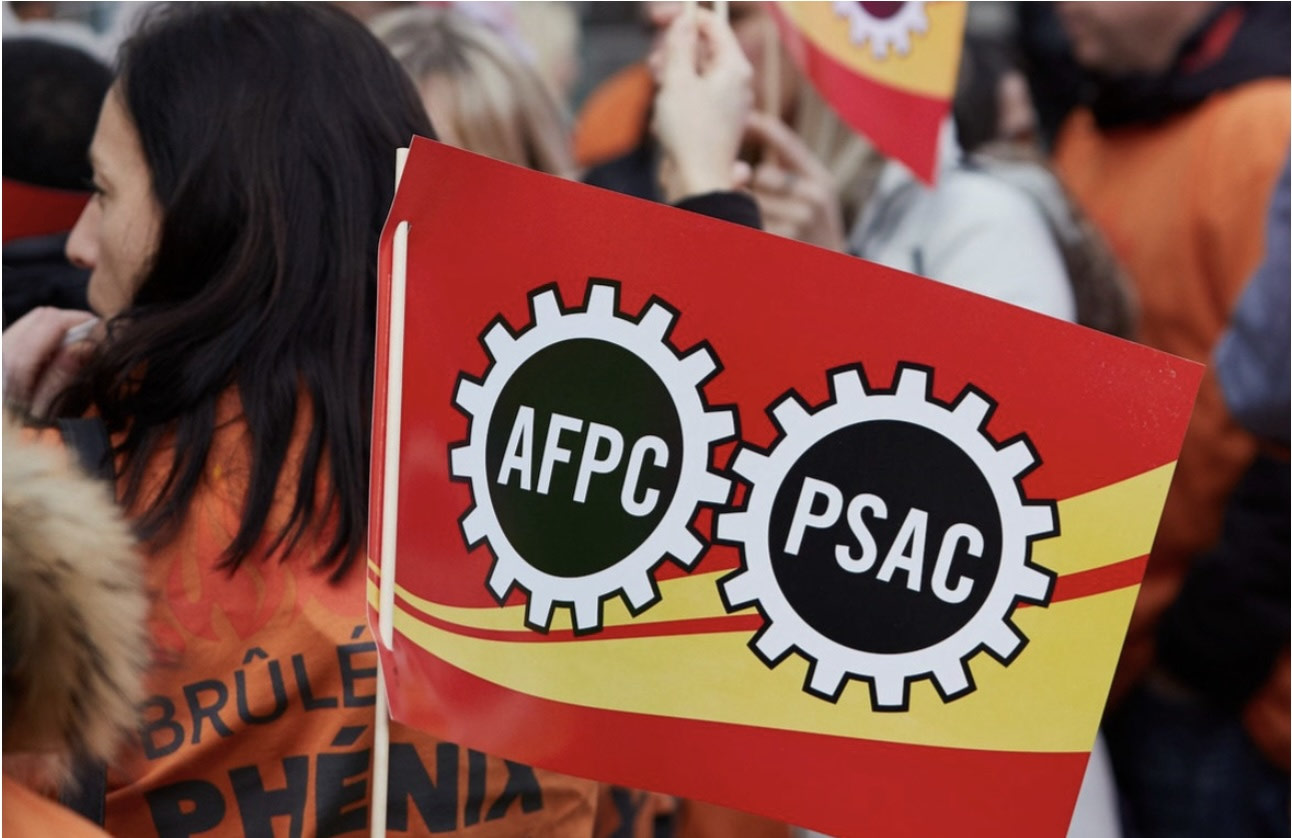
The Public Service Alliance of Canada (PSAC), who initiated a boycott following the government’s announcement to return federal employees to the office three days a week, found themselves in hot water after dragging local small businesses into their crossfire. Photo: The Public Service Alliance of Canada.
PSAC boycott campaign takes turn for the worse
Djeneba Dosso
The Public Service Alliance of Canada (PSAC) may have gone too far to stop the mandatory return of federal public servants to the office in downtown Gatineau. In a campaign first called ‘Buy Nothing,’ later renamed ‘Buy Local’— ultimately deleted from the alliance’s social media altogether following backlash — they encouraged public servants to stop frequenting local restaurants during the lunch and happy hours. While their intentions may have been in the right place, their attacks were directed at the wrong targets, said the Gatineau Chamber of Commerce (GCC) in a press release dated September 12.
“We would like to emphasize that the merchants in our city centre are not responsible for these decisions and should not be targeted in this action,” said Etienne Fredette, Director General of the GCC. “They are essential partners in local economic vitality and job creation drivers that support the community.”
The boycott, which only lasted 24 hours before being dismantled, came following the mandatory three-day return to office for public servants working remotely. In a now deleted Instagram post, PSAC urged workers to stop frequenting local businesses in downtown Gatineau and Ottawa. A few hours later, the post was replaced with a campaign to only frequent local restaurants as opposed to big chains.
But the decision to bring employees back to the office is “a problem between the syndicate and the federal government,” Mark Sutcliffe, Mayor of Ottawa stresses. “Small businesses in the city centre in Ottawa are not part of this issue.” He was backed by Gatineau Mayor Maude Marquis-Bissonnette, who added, “With this campaign and boycott, unfortunately, the target is not the right one.”
The alliance, now under hot water and facing pressure from all sides, released a statement on September 12, acknowledging its faults.
“After consulting with local businesses and our members, I recognize that this approach was misguided, and it was never my intention to pit public servants against small businesses,” said Ruth Lau MacDonald, Regional Executive Vice-President for PSAC. “We’re calling on the federal government to work with municipalities and businesses to revitalize downtowns without putting the onus on public servants.”
The ideology that public servants were being brought back to work in-person to revitalize the city core’s economy was a leading factor in the execution of this boycott. It is to be noted that federal workers’ spending increases significantly when they work from the office. Small amounts, all spent downtown in a day’s work, such as gas, parking, breakfast, lunch and/or dinner, drive up their daily tab. The GCC, however, is of the opinion that the “revival of the city centre does not depend exclusively on the presence of public servants.”
“Public servants certainly play an important role in our region, but they are not the only option to ensure the economic and social vitality of our city centre. We have made this mistake in the past and it is crucial not to repeat it,” said Fredette. The GCC named local businesses, professional services and creative and technology industries as entities that build a resilient economy outside of dollars spent by public servants when working downtown.
Despite all this commotion, the government stands firm on its decision to return federal employees to the office three days a week, allocating two days of remote work. The GCC is calling on all stakeholders, including the PSAC to join forces to find solutions that will support workers, businesses and the community alike.
“The economic development of our inner city requires a collaborative and inclusive approach, and we believe it is in everyone’s best interest to foster a prosperous economic environment for residents, businesses and employees.”




